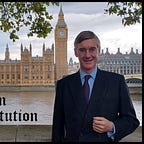The backbone of any constitutional system is the franchise. An absolute monarchy has one voter, an oligarchy has a few, while a democracy has many. Yet even in a democracy the franchise is limited, babies do not have the vote and nor, in most democracies, do criminals who are in prison. Decisions need to be made and limits imposed.
Prior to 1832, the United Kingdom thought of itself as a democracy, but the franchise was limited and varied widely. In the counties, the number of ‘forty-shilling freeholders’ had increased dramatically because of inflation, which made for a more democratic base for those seats, while the rotten boroughs, often with two Members of Parliament, hardly had any electors. This was seen as unfair, so the Great Reform Act of 1832 systematised, and mainly increased the franchise, although it also took the vote away from the few women who had that right.
As the franchise widened, following a succession of Acts which eventually led to the inclusion of all adults, the age of 18 was established as the right minimum age, and that seemed to conclude the constitutional development. There have been no significant changes to the franchise for over fifty years. Yet now, for apparently opportunistic reasons, Labour is talking about lowering the voting age to 16.













